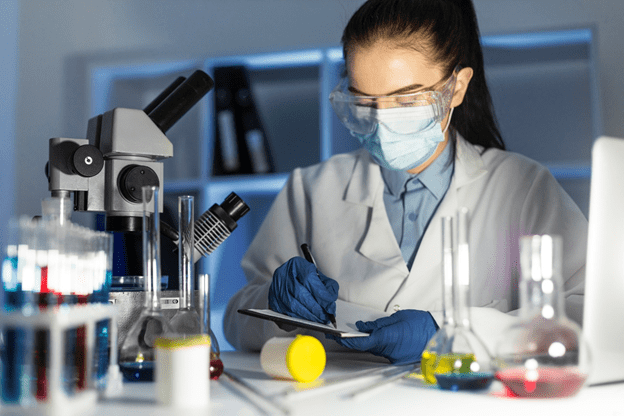The Critical Role of Organic Chemistry in Crime Solving | Expert Organic Chemistry Homework Help
Organic chemistry plays a significant role in forensic science as it provides essential tools and tactics to solve the ratio of crimes and bring justice. Forensic scientists reveal vital information by analyzing the substances found at crime scenes. It may include determining the cause of death and events leading up to a crime. In this blog, we will discuss how organic chemistry plays a pivotal role in solving crimes and how organic compounds contribute to criminal investigation.
The Role of Organic Compounds in Forensic Analysis
Organic compounds, mainly oxygen, carbon, hydrogen, and nitrogen, provide the basis for forensic investigations. In crime scenarios, these compounds are presented in numerous forms, such as toxins, drugs, explosives, and fibers.
Drug Identification
Drug identification is one of the primary applications of organic chemistry in forensic science. To analyze the seized drugs to determine their chemical composition and identify their source, organic compounds and analytical methods play a major part. Tactics such as gas-chromatography-mass spectrometry (GC-MS) and infrared spectroscopy (IR) enable scientists to quantify and trace the drugs.
Toxicology
Toxicology is an important or significant area of forensic science. Toxicologists analyze biological samples such as blood, urine, and tissues to detect the presence of poisons and other substances. Organic chemistry techniques such as high-performance liquid chromatography (HPCL) and liquid chromatography-mass spectrometry (LC-MS) allow the identification and quantification of these compounds.
Fire and Explosive Analysis
Organic chemistry also plays a vital role in the investigation of explosives and fire. Forensic chemists evaluate and analyze residues from fire scenes. By studying the chemical composition of these residues, investigators can determine the origin of a fire or the type of explosive used.
Analytical Techniques in Forensic Chemistry
Several Analytical techniques are also employed in forensic chemistry to analyze organic compounds. Some of the tactics are as follows-
Gas Chromatography-Mass Spectrometry (GC-MS) is an organic chemistry technique ideal for analyzing complex mixtures.
High–performance liquid Chromatography (HPCL) is an organic chemistry technique useful for drug and toxicology analysis.
Nuclear Magnetic Resonance (NMR) Spectroscopy is a technique in organic chemistry that provides detailed information about the structure and dynamics of organic molecules.
Conclusion
At last we can say that organic chemistry is an indispensable tool in forensic science which provide methods and tactics that are essential for solving crimes. As the technology is advancing day by day, the role of organic chemistry in forensic investigation will continue to grow.
If you’re a organic chemistry student seeking concept clarification, take advantage of our online organic chemistry homework help and assignment help services and experience a significant improvement in your understanding.



